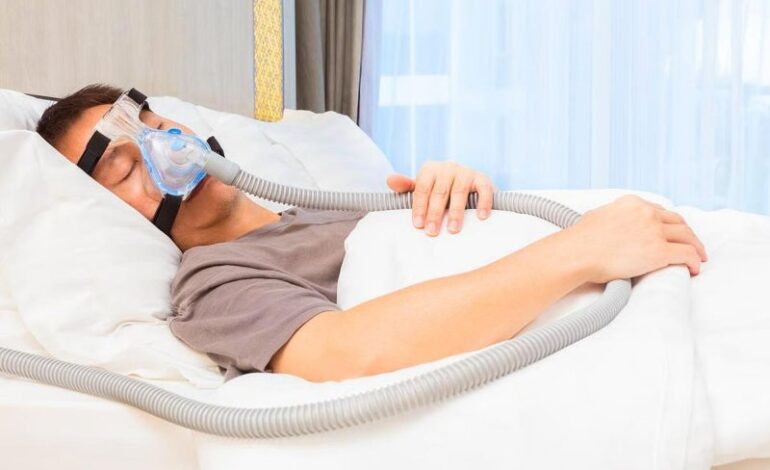CPAP Machines Linked to Increased Heart Risks for Some Users

Recent research published in the European Heart Journal suggests that the use of Continuous Positive Airway Pressure (CPAP) machines, commonly prescribed for sleep apnea, may not be advisable for everyone. While CPAP can significantly reduce heart-related risks for those with severe sleep apnea, it may actually increase the likelihood of heart attacks, strokes, and cardiovascular-related deaths among individuals with milder forms of the condition.
The study analyzed data from more than 3,500 participants across three major clinical trials. It found that individuals with severe sleep apnea experience harmful drops in blood oxygen levels and large surges in heart rate, both of which CPAP helps mitigate. Specifically, these high-risk patients saw a 17% reduction in the risk of heart attacks, strokes, and heart-related deaths.
On the other hand, researchers identified a troubling trend among individuals with milder sleep apnea who do not experience daytime sleepiness. For these patients, CPAP usage was associated with a 30% increase in serious heart problems. Lead researcher Ali Azarbarzin, a sleep medicine investigator at Brigham and Women’s Hospital in Boston, emphasized the importance of considering individual risk factors when prescribing CPAP therapy.
Sleep apnea, a condition characterized by the relaxation of throat muscles leading to airway collapse, contributes significantly to various health issues. Previous studies have linked it to a 140% increased risk of heart failure, a 60% risk for stroke, and a 30% higher chance of developing heart disease. Despite these associations, earlier examinations of CPAP’s effects on heart health had not established a clear benefit.
Azarbarzin’s team aimed to clarify the heart health implications of CPAP treatment by consolidating findings from multiple trials. The results reaffirmed that while CPAP is beneficial for high-risk patients, it could pose risks for those without significant symptoms or existing heart conditions. “For people with high-risk obstructive sleep apnea, CPAP likely helps by preventing low oxygen levels and calming the overactive sympathetic nervous system during sleep,” Azarbarzin noted.
The research also highlights potential mechanisms for the adverse effects observed. One theory suggests that the air pressure from CPAP might stretch the lungs, placing additional stress on the cardiovascular system. Another possibility is that CPAP could disrupt sleep for some users, and sleep disruption is itself a known risk factor for cardiovascular issues.
Given these findings, Azarbarzin advocates for a more personalized approach to treating sleep apnea. He stated, “Instead of treating everyone the same, we should consider whether someone has high-risk features. These are the people who seem most likely to benefit from CPAP.”
Despite the study’s insights, Azarbarzin cautioned that further research is necessary to fully understand the implications of CPAP use. The observed increase in heart-related risks was primarily seen in non-sleepy patients with pre-existing heart conditions, leaving open questions about its applicability to other groups.
For additional information on sleep apnea and its treatments, resources such as Yale Medicine provide comprehensive insights into this common yet complex health issue. As the medical community continues to unravel the intricacies of sleep apnea treatment, it is clear that personalized approaches will be crucial for optimizing patient outcomes.






